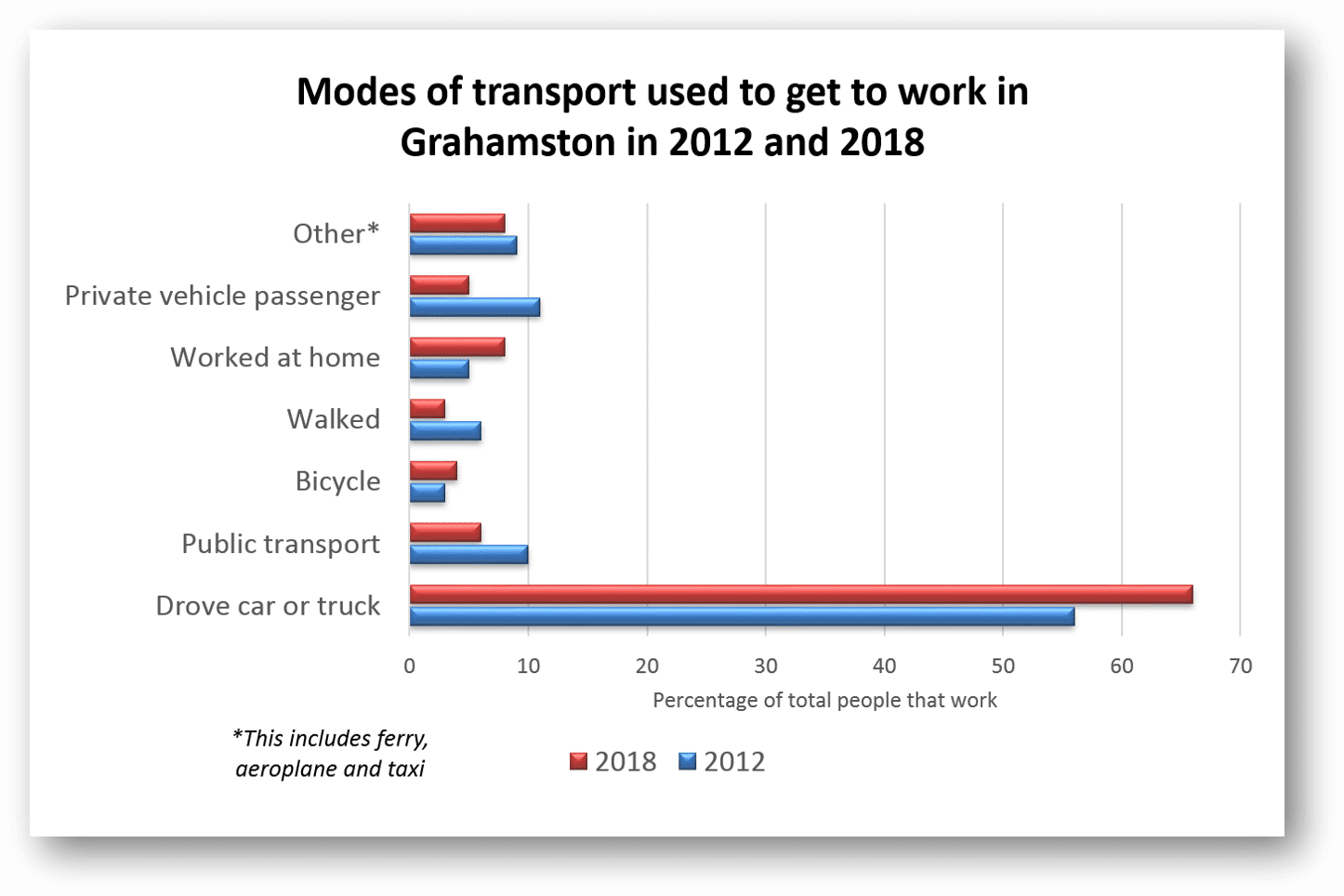Task 1
You should spend about 20 minutes on this task.
The chart shows how people travelled to work in 2012 and 2018.

Summarise the information by selecting and reporting the main features, and make comparisons where relevant.
Write at least 150 words.
The chart shows the ways in which people traveled to work in 2012 and 2018 in Grahamston.
In 2012, over half traveled to work in a car or truck, and the second most common method was to be driven as a passenger. The least common form of transport for the first period given was traveling by bicycle. One tenth of people traveled by public transport; just under 10% used ‘other’ forms and around 6% walked to work. 5% required no form of transport to get to work as they worked from home.
There was an increase of just over 10% of those who drove themselves to work by 2018, while the percentage of passengers almost halved. There was a significant decrease in the percentage using public transport, whereas, the figures for those working from home almost doubled. The percentage of people who walked to work fell dramatically while data for those using bicycle or ‘other’ means of transport remained fairly stable.
In both periods given, driving independently to work was by far the most common method of transport.
(178 words)
Task 2
You should spend about 40 minutes on this task.
Write about the following topic:
In some countries, people who commit less serious crimes are made to undertake community service* instead of a prison sentence. Some people believe that all people who have committed a crime should be sent to prison.
Do you agree or disagree?
*compulsory work helping the community, such as decorating public facilities, which they must carry out in their spare time for a given period.
There are certain situations in which the law has been broken where it is more appropriate to sentence the guilty party to community service rather than time in jail as the following essay explains.
Firstly, the penal system in many countries is under pressure. In many cultures, crime rates are increasing, exacerbating this problem. Funding of correctional institutions is expensive and many believe that money spent would be better utilised in other areas, such as healthcare. It would be unacceptable for some criminals who pose a risk to society, such as murderers, to retain their freedom; however, demands on the prison system can be eased if minor criminals, shoplifters for example, are punished in a different fashion.
Community service is a viable alternative to a prison sentence, not only to ease the financial burden of a country’s crime and punishment system, but also because while offenders are punished by having to sacrifice their free time, they also make a contribution to society. For example, if community service involved renovation of a youth centre in a deprived area, the local people could benefit enormously and costs of providing the facility would be decreased due to the free labour provided by those carrying out community service.
Admittedly, prison sentences for all crimes could reduce the incidence of crime over the long-term; however, many offenders may not be discouraged from breaking the law regardless of potential punishment as they may believe that they will never actually be caught.
To summarise, though prison sentences for all crimes could reduce the number of offences, there are stronger arguments for not imprisoning all offenders.
(267 words)
